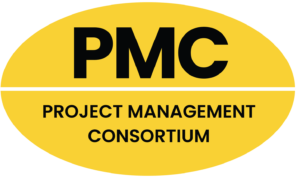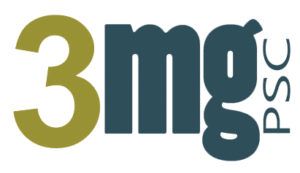Building a space that works for an organization is the goal of the facilities manager. Facility1 management is a $1.15 trillion global industry with an estimated 2.5 million industry professionals and participants worldwide, making it instrumental in leading the future of the built environment. Sadly, we have too many spaces that inconvenience the end-user, which increases costs and pollution and creates safety and health concerns.
In the past, facilities management worked in isolation to create a fit-for-purpose built environment. Today, managing a facility is a holistic approach that requires the input of experts from different disciplines within the built environment (from engineering to IT, architecture, and design) to meet your organization’s needs.
How Will Facilities Management Leverage the Impact of the Current Built Environment?
The built environment was once all about efficiency. Today, quality has gained more attention and is considered to be on par with form and functionality. As Howard Davis said in his book, The Culture of Building, “The quality of buildings and cities is re-emerging as a central responsibility and challenge.”
Built experience in terms of factors such as beauty and sustainability are now key issues of focus in physical places. In 2018, the European Ministers of Culture adopted the Davos Declaration to ensure that future buildings provide a streamlined, functional experience. Some of the criteria in the practice of building high-quality places include considerations of economy, environment, diversity, context, beauty, and sense of place.
Important Traits of Facilities Managers
Some of the important traits that are required for success in facilities management are:
- A willingness to achieve ongoing skill and research — Being a subject matter expert in the field is crucial in helping solidify the facility manager’s place in their organization. This requires ongoing research and education to keep up with industry developments and government regulations to make sure that facility management meets industry best practices and standards.
- Professional ethics — Finances are a large factor in influencing facility management decisions. However, the facility manager can overlook certain solutions if they have too much of a focus on cost-saving. End-user experience should also be a primary focus in facility management.
- Hard and soft skills — Having a proper understanding of the technical and fundamental skills involved in every part of the building process is crucial as the facility manager deals with different professionals. That doesn’t mean the facility manager needs advanced engineering or technical design skills, but they should understand the processes and systems to collaborate closely with other disciplines. Soft skills such as emotional intelligence help professionals communicate better with every individual they work with. Otherwise, facility managers can have a hard time getting things done.
The Main Functions of Facilities Management
Facility management is at the heart of building operations. Facilities managers engage with end users and builders throughout the building’s lifecycle. Here are the key functions of facility management:
Supporting People
Creating a supportive environment for all employees helps serve the larger business vision, such as attracting and retaining talent, improving workplace productivity, and ensuring a long-term approach to excellence in the workplace. Facility managers support employees by facilitating movement throughout the space, ensuring their safety and comfort.
Establishing Processes
Creating order and processes is one of the functions of facilities management, as it helps create a system for proper workplace use for issues such as emergency planning. Establishing processes is continuous, and it also involves creating a repeatable framework for new scenarios.
Facilities Improvement and Maintenance
Facility upkeep and improvement of the physical building is one of the most important roles of the facility manager. It involves activities that help the workplace run at a low cost and meet the needs of users. Activities include:
- Partnership management, including finding vendors for the long term.
- Asset management, including repair and maintenance.
- Foreseeing and planning for the future.
Integrating Technology
According to a 2021 study of the global PropTech (Property Technology) sector2, 2,045 companies in 66 countries raised $12.05 billion from 1,809 investors for tech investment. Tech integration in facilities is more than nice to have. The right technology gives access to data, visibility, and automation for better and faster decision-making.
While an IT professional should help the facility manager identify their different options, the ultimate decision on selecting and leveraging IT lies with them. Typical practices include using data to research IoT devices, integrating IoT devices into daily processes, and determining the cost and advantage of technologies.
The Disciplines Facilities Managers Must Stay Informed About
The built environment is made up of many professional disciplines that facility managers benefit from staying informed about, including:
Architecture
Architects ensure that the facility manager’s building has a long life and help with several functions, including:
- Making a strong facility plan by anticipating needs upfront so that they incorporate that into the design.
- Researching to find durable finishing materials.
- Building for flexibility to cater to possible future changes and create a capacity for longevity.
Engineering
A building contains many technical systems incorporated behind its ceilings, floors, and walls that impact its functionality. Ensuring that all these systems are safe and cost-effective is part of the engineering knowledge facility managers need to have. Engineers design the piping, installations, wiring, sensors, and fittings to facilitate a regular supply of water, heat, air, and electricity. Facilities engineering ensures that routine facility processes are safe and efficient, while also monitoring processes for improvement opportunities and adherence to set safety, environmental, and engineering standards.
IT Infrastructure
Modern buildings are integrating building information modeling (BIM). These intelligent systems allow for readings, diagnostics, and adjustments. IT infrastructure also allows for the automation of facility management. Staying on top of upcoming trends underpins that a building remains relevant for many years to come.
Redesign
Facility management also requires the input of designers, so some design knowledge is needed for better collaboration. An optimal design elevates the safety of users and facilitates convenient operations. Walls and partitions, for instance, provide designers with many possibilities to limit or expand the main spaces within a building.
The Best Technology and Tools to Assist Facilities Professionals
- Technology that allows for quick space reconfiguration and easy access to data.
An adaptive cabling design gives the facility manager access to the power needed to support low voltage devices in their facility wherever they need it while keeping everything out of sight. An adaptive cabling distribution system like Gridd® from FreeAxez employs a whole-building approach to your business infrastructure, enabling facility managers to adapt to future tech changes while saving time and money.
- Technology for accessible power to avoid costly rewiring projects.
Obsolete cabling systems equal expensive rewiring projects. Outdated systems cannot monitor current loads in real time, and have to go through manual processes. New technology provides access to power anywhere on your open floor and uses preconfigured elements rather than traditional hard wiring. An integrated power delivery model such as Gridd® Power gives facility managers the flexibility they need to reconfigure and adjust changing power and layout requirements.
- Technology that allows for on-the-spot configuration
Attempting to manually identify underfloor situations or make changes and upgrades is costly. Augmented reality (AR) technology such as Gridd® Mobile simplifies underfloor management. It lets you view cable pathways beneath the” floor on your smartphone to identify areas for change while minimizing disruption and cost.
Gridd is the industry leader in low-profile access floor and cable management systems. FreeAxez has been the premier developer, innovator, and manufacturer of adaptive cabling distribution systems for more than 25 years. Contact us for advisory support and to see what the Gridd systems can do for your facility.










 The 2024 virtual Men’s Round Table will be held Q4, 2024, date TBD.
The 2024 virtual Men’s Round Table will be held Q4, 2024, date TBD.













